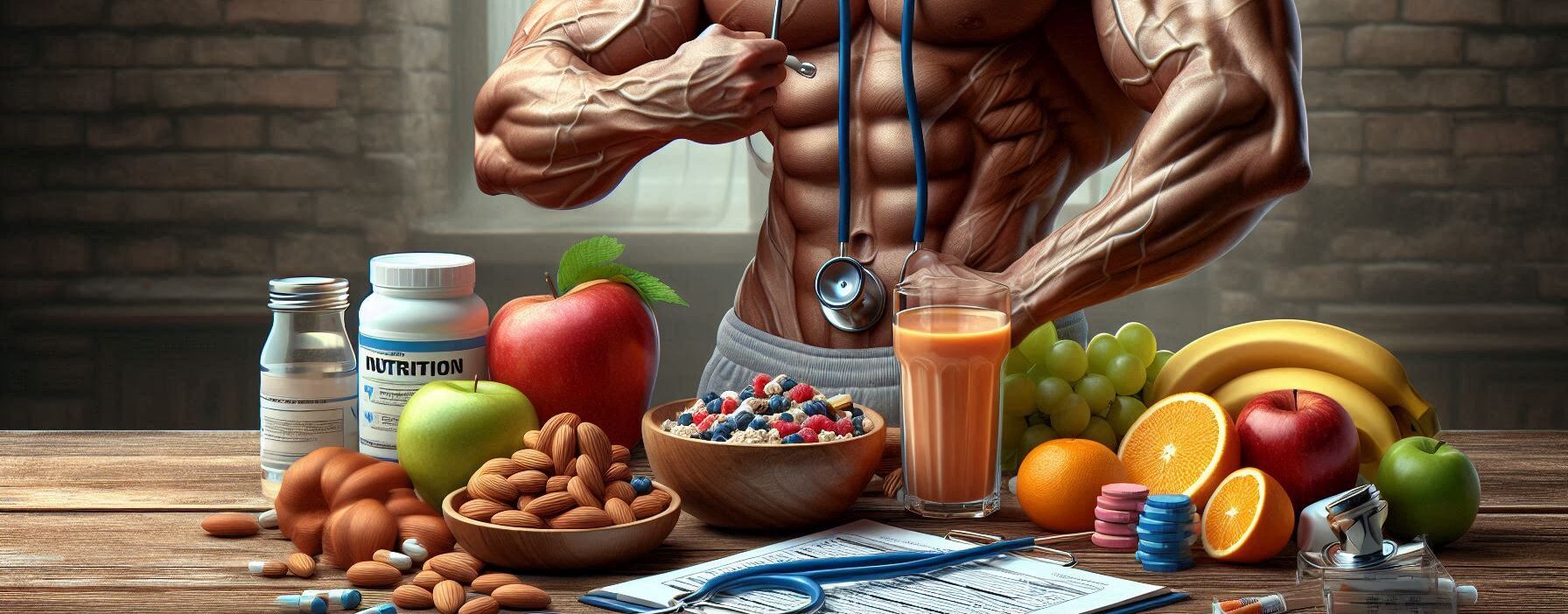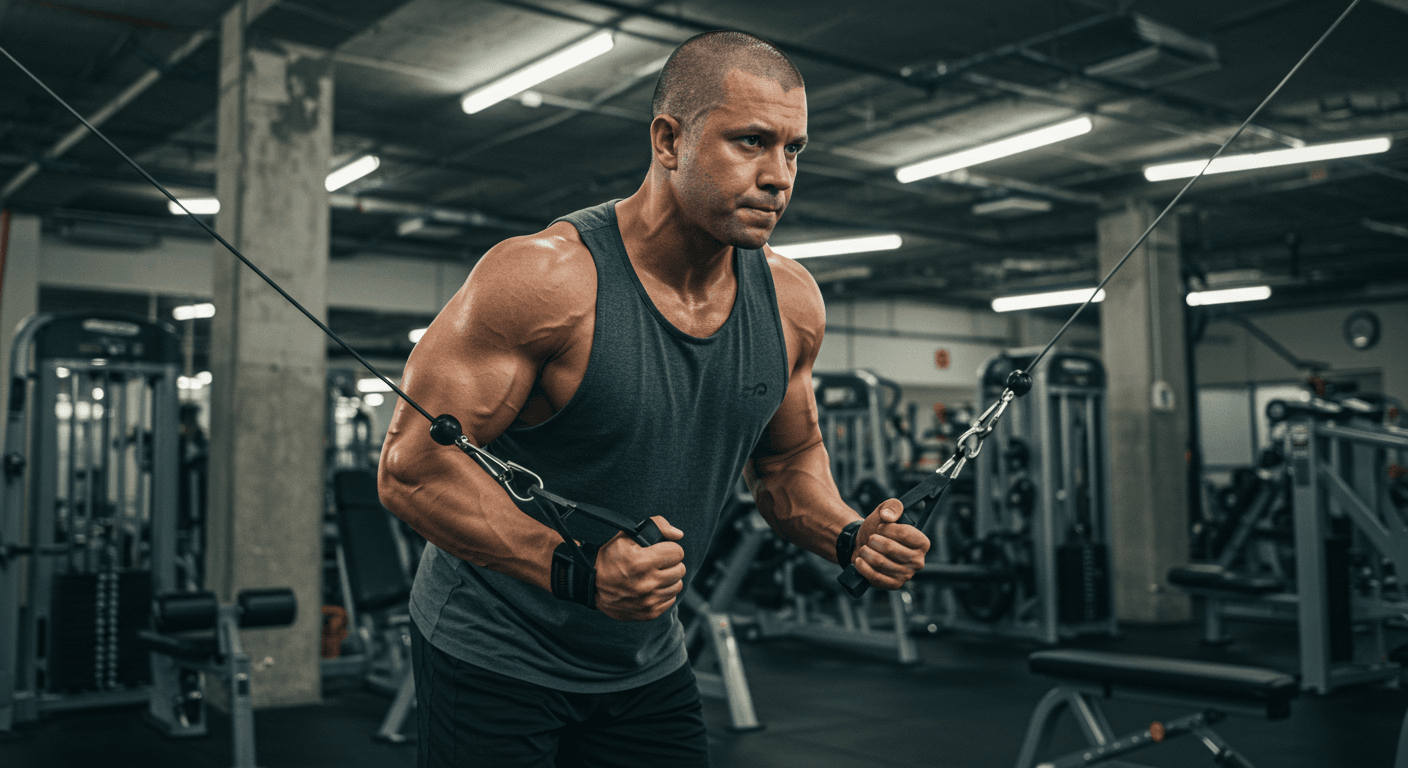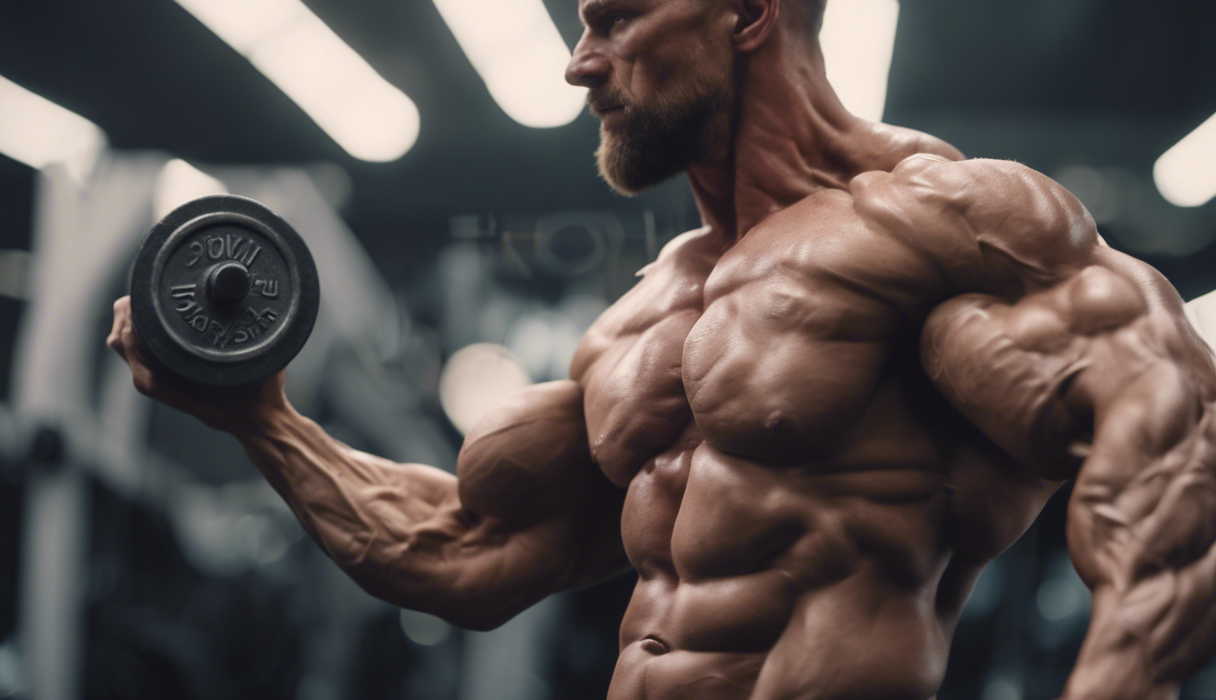
If you think bodybuilding is all about lifting heavy things and flexing in front of mirrors, think again! Sure, the weights are important, but what you put into your body is just as crucial—if not more so.
Welcome to the world of bodybuilding nutrition, where protein shakes flow like water and meal prep can become an Olympic sport. Let’s dive into how to create a nutrition plan that’ll have your muscles thanking you louder than your neighbor’s dog during a thunderstorm.
Top Takeaways and Key Concepts
Prioritize protein daily by eating 1.6–2.2g per kg of body weight to repair and build muscle.
Fuel workouts with carbohydrates like oats, rice, and fruit to maintain training energy.
Include healthy fats such as avocados and nuts to support hormone balance and recovery.
Eat consistently every 3–4 hours with balanced meals and snacks to maintain muscle growth.
Refuel within 30 minutes post-workout using fast-digesting protein and carbs to speed recovery.
Summary of This Article
This article explains how nutrition plays a central role in bodybuilding success and muscle growth. It breaks down the importance of the three key macronutrients—protein for muscle repair, carbohydrates for workout energy, and healthy fats for hormone production. A sample meal structure includes protein-rich breakfasts, smart snacks, balanced lunches, proper hydration, and intentional post-workout refueling. The article emphasizes consistent eating habits and adjusting food intake based on training results. With planning and dedication, a bodybuilding nutrition plan can effectively support strength goals and muscle gains.
Video Summary
Please Note: This post may contain affiliate links. If you click one of them, we may receive a commission at no extra cost to you. As an Amazon Associate, I earn from qualifying purchases.
Shortcuts to Exercise Equipment Shopping at Amazon
Ellipticals - Exercise Bikes - Recumbent Bikes - Treadmills - Rowers
Dumbbells - Resistance Bands - Kettlebells - Benches - Pull-up Bars
Understanding Your Nutritional Needs
Before we jump into the nitty-gritty of meal planning, let’s talk about why nutrition matters. You wouldn’t try to drive a car without gas (unless you enjoy walking), right? Similarly, your body needs fuel to build muscle effectively.
Macros: The Holy Trinity
When it comes to bodybuilding nutrition, three macronutrients rule the roost: proteins, carbohydrates, and fats. Think of them as the Three Musketeers of your diet—each has its role in helping you achieve maximum gains.
– Protein: This is the heavyweight champion for muscle repair and growth. Aim for about 1.6 to 2.2 grams per kilogram of body weight daily. So if you’re wondering how many chicken breasts that means… well, let’s just say it’s quite a few!
– Carbohydrates: Often misunderstood and unfairly vilified (seriously, who doesn’t love bread?), carbs are essential for energy. They’re like rocket fuel for your workouts—without them, you’ll be feeling flatter than a pancake on National Pancake Day.
– Fats: These guys help with hormone production and nutrient absorption. Don’t fear fat; embrace healthy sources like avocados or nuts! Just remember that moderation is key—too much can turn those biceps into blimps!
Crafting Your Meal Plan
Now that we know our macros, let’s create a meal plan that would make even Gordon Ramsay proud (minus the yelling).
Breakfast: The Most Important Meal
Starting off strong is vital! A good breakfast sets the tone for your day—and by “good,” I mean something other than cold pizza left over from last night.
– What To Include: Try oatmeal topped with berries and Greek yogurt or scrambled eggs with spinach. Both options pack a punch of nutrients while keeping you full until lunch.
– Pro Tip: Prepare overnight oats if mornings are too chaotic—mix rolled oats with milk or yogurt before bed and wake up ready to conquer!
Snack Attack!
We all get hungry between meals; it’s part of being human (or at least part of my human experience). Snacks can keep energy levels high without derailing progress.
– Healthy Options: Think protein bars (just read labels!), fruit with nut butter, or cottage cheese with pineapple. Honestly, if you eat enough cottage cheese, you might start mooing.
– Timing Matters: Try snacking about every 3 hours—this helps maintain energy levels and keeps those muscles fed throughout the day.
Lunch Like a Champ
For lunch, aim for balanced plates filled with lean proteins and complex carbs.
– What To Choose: Grilled chicken breast over quinoa with veggies makes for a winning combo! Or go vegetarian with chickpeas tossed in salad—it’s fresh AND fabulous.
– Don’t Skip It!: Skipping lunch is like skipping leg day—you may think it won’t matter now but trust me; it will catch up later!
Hydration Is Key
Let’s not forget hydration—the unsung hero in any fitness journey! Staying hydrated helps digestion and keeps muscles functioning optimally.
Water vs. Sports Drinks
While sports drinks can be helpful post-workout due to their electrolytes (and taste way better than plain water), they often contain added sugars that aren’t necessary unless you’re training intensely.
– General Rule: Aim for at least 2 liters (about half a gallon) daily—but this can vary based on activity level and climate conditions.
– Bonus Tip: If plain water bores you faster than watching paint dry, infuse it with fruits like lemon or cucumber!
Post-Workout Refueling
After tearing down those muscles in the gym comes rebuilding time—a.k.a., refueling!
Timing Is Everything
Ideally within 30 minutes after working out should be when you consume protein-rich foods along with some carbs to replenish glycogen stores.
– Quick Fixes: A protein shake mixed with banana works wonders here—or maybe even leftover grilled chicken from lunch? Who said leftovers can’t be gourmet?
Adjusting Based on Progress
As we embark on this delicious journey together toward maximum gains, remember that flexibility is key!
Listen To Your Body
Your nutritional needs may change as your training intensity increases or decreases:
– If you’re gaining too much fat alongside muscle—or not enough muscle at all—it might be time to tweak portions.
By keeping track of how different foods affect performance and recovery through journaling or apps like MyFitnessPal—you’ll soon discover what fuels YOU best!
Conclusion
Creating a bodybuilding nutrition plan doesn’t have to feel overwhelming—even if it sometimes seems as complicated as deciphering hieroglyphics while juggling flaming swords! With proper knowledge about macros combined with practical meal ideas tailored just for YOU—the path toward maximum gains will become clearer each step along the way.
Here are some resources I found helpful:
Nutrition Tips for Bodybuilders
https://www.bodybuilding.com/content/nutrition-tips-for-bodybuilders.html
The Importance of Protein in Muscle Building
https://www.healthline.com/nutrition/protein-muscle-building
Meal Prep Ideas for Bodybuilders
https://www.muscleandstrength.com/articles/meal-prep-guide-for-bodybuilding.html
Frequently Asked Questions
How much protein should I eat daily for muscle growth?
Most lifters benefit from about 1.6 to 2.2 grams of protein per kilogram of body weight daily to support muscle repair and growth.
Why are carbohydrates important in bodybuilding nutrition?
Carbohydrates supply training energy and help sustain workout intensity by maintaining glycogen levels for performance.
Do healthy fats matter for building muscle?
Yes, healthy fats help with hormone balance and vitamin absorption, both of which influence recovery and muscle building.
How often should I eat to support muscle gains?
Eating every 3 to 4 hours helps keep muscles nourished and provides a steady flow of nutrients for muscle repair throughout the day.
What should I eat after a workout?
A quick combination of fast-digesting protein and carbohydrates within 30 minutes can replenish glycogen and speed post-training recovery.
Should I drink sports drinks every day?
Sports drinks can be useful after intense training, but water is usually enough for normal activity without the added sugars.
How do I know when to adjust my nutrition plan?
If you feel low energy, struggle to recover, or see changes in muscle or fat levels, adjusting food amounts or timing can improve results.

Kevin Collier is a passionate fitness expert dedicated to helping individuals achieve their health and wellness goals. With a focus on weight lifting, exercise routines, and effective weight loss strategies, he aims to inspire and motivate others on their fitness journeys. Through evidence-based insights and practical advice, Kevin empowers readers to make informed decisions about their health, encouraging a balanced approach to fitness and overall well-being. Whether you’re a beginner or an experienced athlete, his expertise offers valuable guidance to elevate your fitness game.




